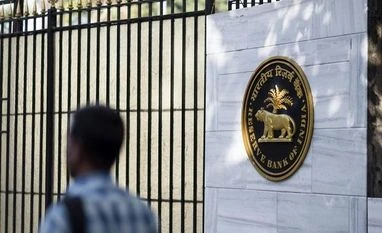Despite retail inflation rising to 6.01 per cent in January, and likely to remain elevated till April, a foreign brokerage report expects RBI to leave key policy rates unchanged throughout the first half of 2022.
Swiss brokerage UBS Securities India sees the policy to change only from the second half wherein the Monetary Policy Committee (MPC) may deliver a 50 basis points hike in the second half starting from the August policy.
The official data released on Monday showed that retail inflation spurted to a seven-month high in January at 6.01 per centbut lower than the previous high of 6.26 per cent in June 2021.
Wholesale inflation stayed in double-digit at 12.96 per cent.
The government also revised upwards the CPI inflation for December 2021 to 5.66 from 5.59 per cent.
Reserve Bank Governor Shaktikanta Das had said the rise in inflation was primarily due to statistical reasons, especially in the third quarter of FY22, and the same base effect will play in different ways in the coming months.
Also Read
Das had said the RBI has already factored in high inflation numbers in its recent bi-monthly monetary policy, and retail inflation in January above 6 per cent "should not surprise or create any alarm".
RBI expects retail inflation to soften to 4.5 per cent next fiscal year, while projecting it at 5.3 per cent for 2021-22 and based on this it had left all the key rates unchanged and retained its dovish stance.
Tanvee Gupta-Jain, the chief economist at UBS Securities India said, the latest numbers are on expected line and the uptick was largely driven by an adverse base effect and continued supply side constraints.
Core inflation remained sticky at 6 per cent versus 6.1 per cent in the previous month, reflecting gradual pass-through of higher input cost to the consumers.
She also said price pressure in rural areas is higher at 6.1 per cent than in urban areas which was marginally lower at 5.9 per cent.
She expects retail inflation to remain elevated in the 5.5-6 per cent range until April given the massive spike in commodity prices, especially oil, supply-side disruptions along with rising input costs pressures which will keep inflation higher over the coming months.
Though CPI will remain elevated until April 2022, before easing towards 5 per cent from June quarter, when oil prices are likely to begin to fall on rising supplies, she expects the MPC to keep the repo rate unchanged till first half of FY23, before delivering a first hike in the August policy and a cumulative increase of 50 basis points hike in the second half.
She said UBS expects that over the next two-three months, supply is likely to remain constrained and the macro backdrop, given the China stimulus, will remain supportive and a material impact of crude prices falling will be visible over next 6-12 months.
(Only the headline and picture of this report may have been reworked by the Business Standard staff; the rest of the content is auto-generated from a syndicated feed.)
)